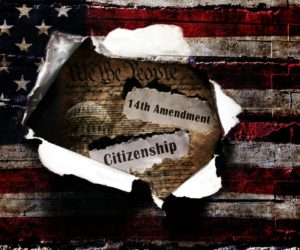
Will this be perceived as the truth finally coming out — or a nice, big batch of sour grapes? Read it, and you decide: Mitt Romney’s son Tagg Romney, in a report in the Boston Globe, now says his Dad didn’t really want to run for President anyway:
Romney’s eldest son, Tagg, drew up a list of 12 people whose lives had been helped by his father in ways that were publicly unknown but had been deeply personal and significant, such as assisting a dying teenager in writing a will or quietly helping families in financial need. Such compelling vignettes would have been welcome material in almost any other campaign. But Romney’s strategists worried that stressing his personal side would backfire, and a rift opened between some in Romney’s circle and his strategists that lasted until the convention.
A big mistake: I read the excellent book “The Real Romney” and what you read there is a man who may have his flaws but was highly admirable in most ways in some of the things he did privately, as a family man, and as a church member. This part of Romney never came out in the campaign (and yours truly was not a Romney fan). Romney wasn’t so much an Etch-a-Sketch as a blank slate and the Democrats were most happy to fill it in with things that were not necessarily totally offbase but could have been countered by a strong case made by the Romney side. The case was never made.
More than being reticent, Romney was at first far from sold on a second presidential run. Haunted by his 2008 loss, he initially told his family he would not do it. While candidates often try to portray themselves as reluctant, Tagg insisted his father’s stance was genuine.
“He wanted to be president less than anyone I’ve met in my life. He had no desire to . . . run,” said Tagg, who worked with his mother, Ann, to persuade his father to seek the presidency. “If he could have found someone else to take his place . . . he would have been ecstatic to step aside. He is a very private person who loves his family deeply and wants to be with them, but he has deep faith in God and he loves his country, but he doesn’t love the attention.”
Will this be seen as post-election rationalization? The bottom line is that during the debates and on the stump Mitt Romney most assuredly seemed like someone who wanted to sit in the Oval Office and was willing to say anything if he felt it could win him votes. At no point during the campaign did he seem like someone who was dragging his feet or who had been forced to run by family members. Which doesn’t mean Tagg Romney is not correct. Romney in his primary debates and Presidential nominee debates hardly looked like someone who lacked a fire in his belly.
And then there’s this tidbit:
Adding to the discomfort was Romney’s inability to persuade one of his most valued advisers to join the team. Mike Murphy, who had engineered Romney’s successful race for governor of Massachusetts, understood Romney like few others. While Murphy said he was flattered by Romney’s overture, he decided to remain in California, where he was working as a screenwriter and part-time political commentator. So Romney eventually picked as his strategist a man with whom Murphy had repeatedly clashed, Stuart Stevens.
By most accounts, Murphy would have be the kind of campaign strategist who could have run a smarter national campaign. Don’t look for Stevens to be invited to run the campaign of the next Republican nominee for President.
The truth or sour grapes about Romney? We link, copy and paste — YOU decide…
Joe Gandelman is a former fulltime journalist who freelanced in India, Spain, Bangladesh and Cypress writing for publications such as the Christian Science Monitor and Newsweek. He also did radio reports from Madrid for NPR’s All Things Considered. He has worked on two U.S. newspapers and quit the news biz in 1990 to go into entertainment. He also has written for The Week and several online publications, did a column for Cagle Cartoons Syndicate and has appeared on CNN.
















